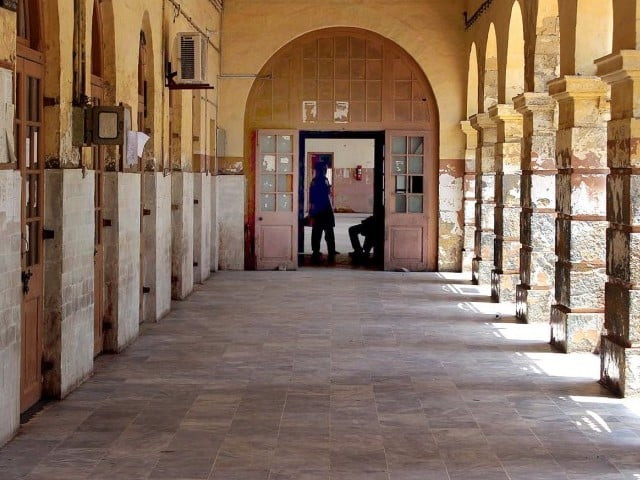Lawyers’ strikes seen as hurdle to speedy justice
Former CJP favours steps to make lawyers more responsible

Former CJP favours steps to make lawyers more responsible. PHOTO: INP
He said every institution should admit that the state had failed to provide the promised justice.
Justice (r) Khwaja said lawyers’ boycott of proceedings was one of the major causes of justice being delayed. He said this had not been the practice when he had joined the legal profession 40 years ago. But now, he said, lawyers went on a strike every other day.
The former CJP called for introducing provisions for accountability to create a sense of responsibility among lawyers. He said that clients had filed 7,500 complaints with bar councils across the country but they took no action against the lawyers concerned.
Justice Khwaja was the first judge from Lahore High Court to resign in protest (LHC) when former president Pervez Musharraf suspended the then CJP Iftikhar Muhammad Chaudhry in March 2007.
LHC Chief Justice Manzoor Ahmed Malik has visited several bars across the province to persuade lawyers against the strikes. His efforts appeared to have produced results until the murder of two lawyers in Daska in May after which lawyers took to the streets again. This was followed by some lawyers locking a judge in a courtroom in Sheikhupura. Justice Malik had to visit the court personally to ensure the work resumed.
In August, lawyers in Lahore had resorted to protest after one of their representatives got into an argument with a woman judge of the LHC.
Prior to these protests, the LHC had disposed of a record number of cases, including all cases filed before 2007. The LHC had then set another target; disposing until December 24 all cases filed before 2010.
Litigants, too, say that the strikes cause problems for them.
Muhammad Ashfaq, a resident of Sheikhupura, told The Express Tribune that his case had been pending before the LHC since 2013. He said the case had been adjudicated by various courts since 1981. He said his lawyer did not pursue the case seriously. “He seeks adjournments from the court quite often. If he is willing to argue, the lawyer for the other party seeks an adjournment,” Ashfaq said.
He said once lawyers for both sides were present, the judge relisted the case for shortage of time. He said a judge from a lower court had reserved a verdict for seven months. He blamed the lawyers’ boycott of courts for the delay.
Published in The Express Tribune, September 14th, 2015.



















COMMENTS
Comments are moderated and generally will be posted if they are on-topic and not abusive.
For more information, please see our Comments FAQ